THE KITCHEN (2023)
In a dystopian future London, a man and a boy become unexpected friends... but class conflict is an ever-present threat.
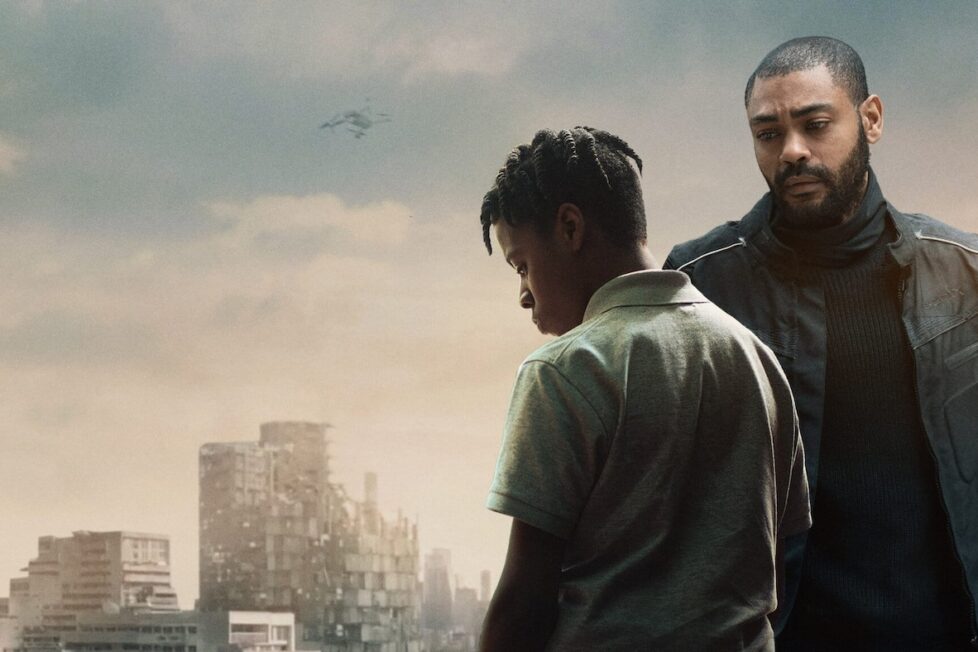
In a dystopian future London, a man and a boy become unexpected friends... but class conflict is an ever-present threat.


In Daniel Kaluuya and Kibwe Tavares’s The Kitchen, the dystopian near-future London instantly intrigues, much like any filmic world that eerily mirrors our own yet diverges in unsettling ways. The 2044 city feels instantly familiar, as do many individual locations—much of it was filmed in London itself, with one key structure curiously hailing from Paris. Tavares’s background in architecture likely played a crucial role in crafting a strikingly plausible vision of how London’s skyline might evolve over the next two decades.
In contrast to the many impersonal monuments to wealth, a housing estate stands with a far more run-down, slightly Asian, slightly Blade Runner (1982) aesthetic. It’s here—The Kitchen, possibly a reference to Hell’s Kitchen in New York—that most of the film unfolds. London’s last pocket of resistance to gentrification; a rather ramshackle, decrepit but still loved home to a multiracial community of maybe a few thousand people, including Izi (Kane Robinson).
Izi leaves The Kitchen each day for the sleek confines of Life After Life, a company that promises to somehow turn the deceased into trees (for a modest price). There, he works as a salesman, dreaming of escaping his cramped quarters for an apartment in a more upscale, albeit less charming, development.
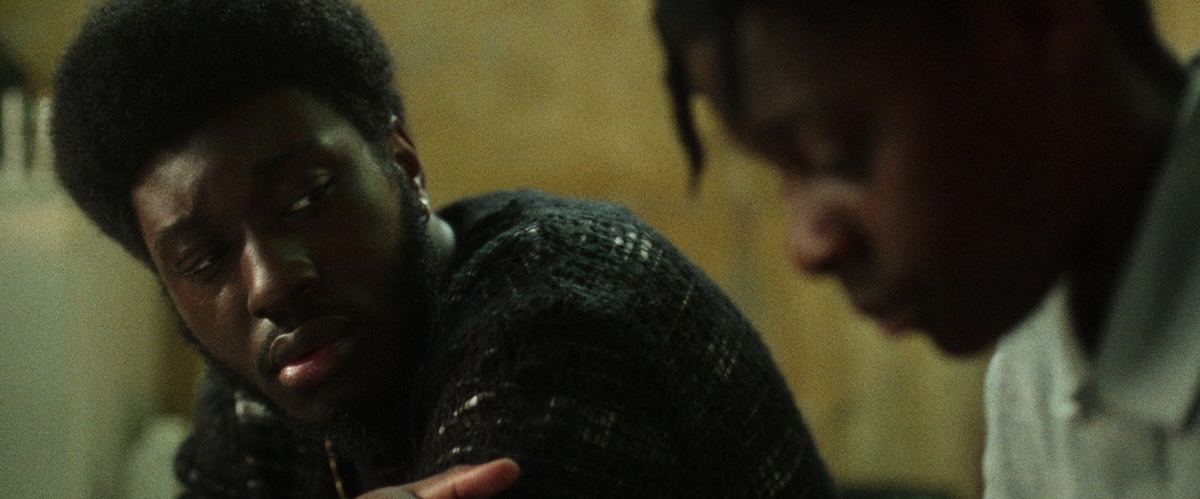
At Life After Life, he meets a young boy, Benji (Jedaiah Bannerman), whose mother has recently died and who doesn’t know his father… though Benji thinks he lives in The Kitchen. No prizes for guessing the revelation that the film’s now hinting at, though in fairness it surely isn’t trying to be subtle on this front. In any case, Izi and Benji become friends—a little reluctantly on both sides, to start with—and before long Benji’s moved into Izi’s Kitchen flat.
Unlike Izi, whose desire is to leave The Kitchen, Benji finds himself drawn into the community and, in particular, to a group of young men who style themselves as class warriors. However, their true motivations remain debatable. Are they driven by genuine ideological conviction, or simply the thrill of unchecked chaos, wreaking havoc on stores and invading homes in the peaceful middle-class suburbs?
Kane “Kano” Robinson, a rapper familiar to UK viewers from Top Boy (2011-2023), and Bannerman carry the film with aplomb, rarely absent and exhibiting convincing chemistry. There’s scarcely a scene without one or both of them involved and both excel with believable chemistry.
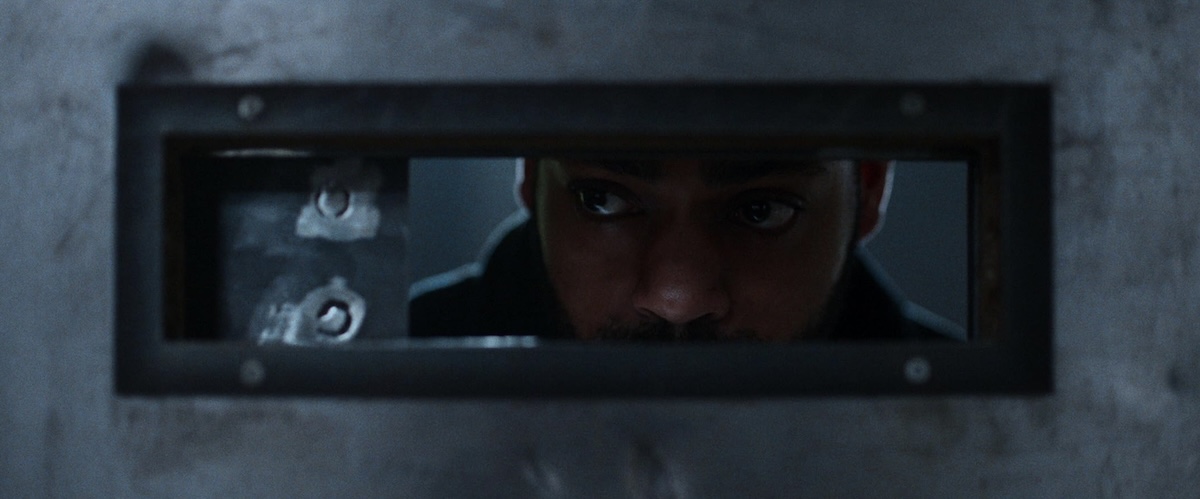
Young Bannerman teeters between cockiness and vulnerability, while Kano’s trademark pensive expression perfectly embodies a character likely aware of his own selfishness and harboring a tinge of unhappiness about it. None of the other characters leave a deep impression, though ex-footballer Ian Wright, playing the self-proclaimed Lord Kitchener, a community broadcaster in The Kitchen, radiates charisma.
Wyatt Garfield’s cinematography is pleasingly stylish and never becomes over-aestheticised, with the film adopting a more vérité style for scenes like the frequent police raids on The Kitchen. The way the camera dwells on its inhabitants, and particularly their faces, heightens the contrast between this very human part of the city and the much more impassive, almost sinisterly enclosing London beyond.
There are nice touches in the writing and directing, too, like a digital kiosk that repeatedly says it can’t understand Izi then tells him off for speaking too loudly, an orgy of vandalism and robbery to the strains of How Great Thou Art, or the way Izi locks the door in a communal shower room so he can have it to himself. It’s a tiny, perfect illustration of his attitude to his neighbours.
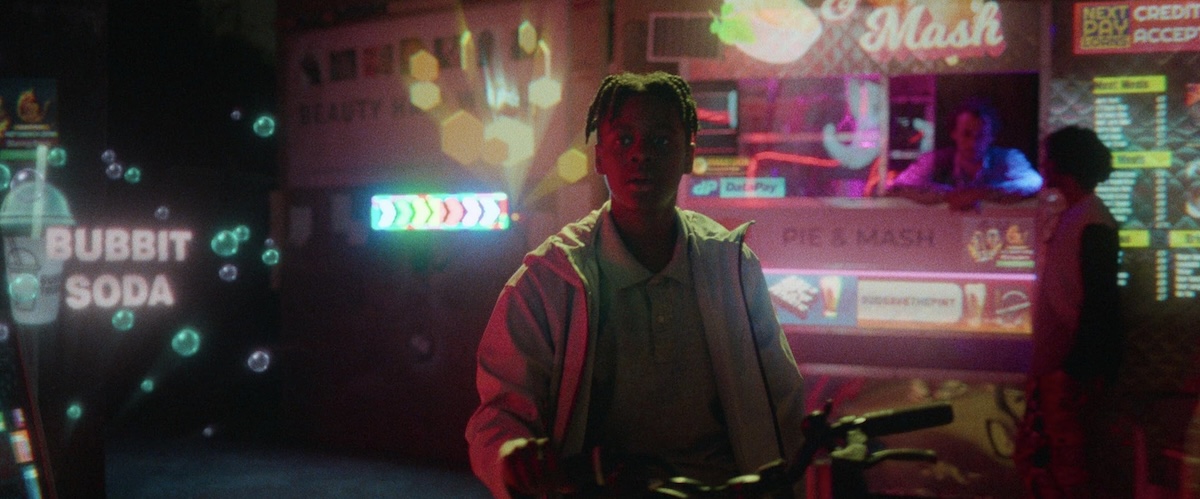
The film even gently teases itself, specifically its use of CGI to create the futuristic city, in a scene where Izi, finally moving into his smarter flat, is treated to fake digital fireworks displayed in the window. One has to wonder whether the flat’s panoramic view of London is also fake; is this what he’s traded The Kitchen for?
While the foundation is strong, The Kitchen falls short of bringing its elements fully to life. The relationship between Izi and Benji feels authentic, but its dramatic arc lacks spark. Despite an unexpectedly ambiguous and impactful ending, the overall trajectory is predictable from the outset. Similarly, the connection between the setting and the plot feels tenuous; the core dynamics between Izi and Benji could easily transpire in any era, including 2024.
Despite its surface credibility, The Kitchen’s vision of the future harbours nagging inconsistencies. For instance, why does it persist despite repeated police raids involving riot gear, seemingly aimed at evicting the inhabitants? These incursions appear inconsequential, given the broader society outside The Kitchen: stable, well-resourced, and seemingly capable of easily subduing this small group of dissidents.
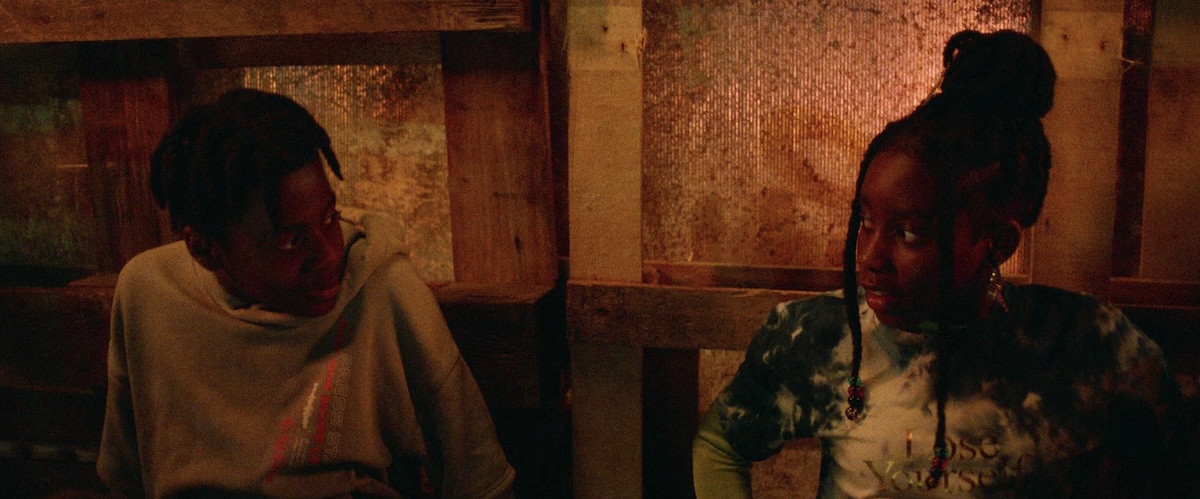
Moreover, the stark class divide in 2044 strains believability. While The Kitchen itself resonates as a powerful symbol of a community resisting capitalism, with Izi’s plight embodying the emotional toll of compromise, the film’s near-absence of any other underclass representation feels jarring. This stark imbalance—an opulent majority and a barely-glimpsed minority—makes the film’s contemporary setting less convincing, suggesting a potential trade-off between powerful symbolism and grounded reality.
While no single issue with The Kitchen is egregious enough to entirely derail the film, their cumulative effect does hold it back. The pacing is indeed rather sluggish, and despite its intriguing ideas, the result falls short of its full potential in terms of engagement. However, there’s much to appreciate in the film’s world-building and the strong performances of its leads. The next projects from this directorial and acting team are worth keeping an eye on.
UK • USA | 2023 | 108 MINUTES | COLOUR | ENGLISH

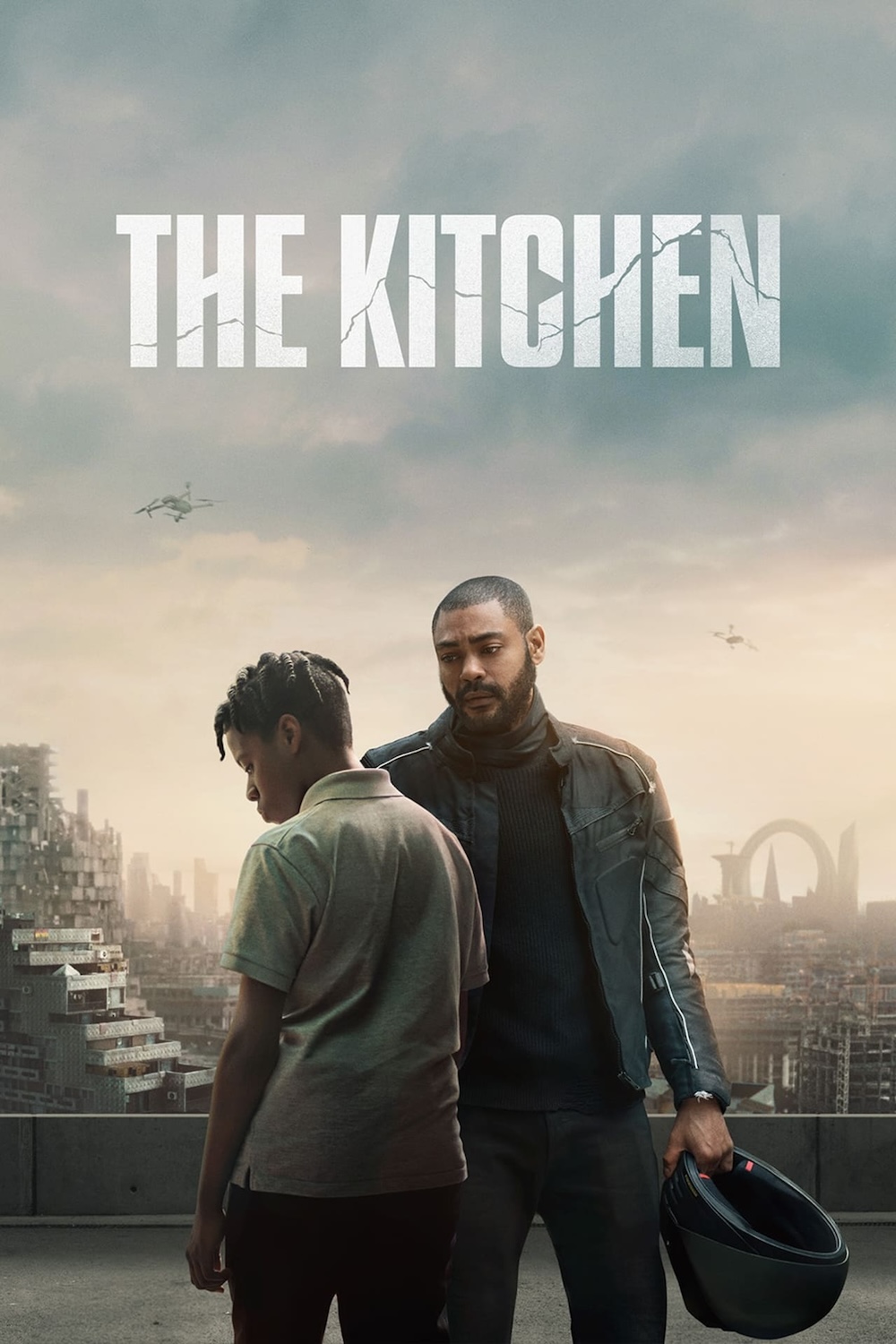
directors: Daniel Kaluuya & Kibwe Tavares.
writers: Daniel Kaluuya & Joe Murtagh.
starring: Kane Robinson, Jedaiah Bannerman, Hope Ikpoku Jr., Teija Kabs, Demmy Ladipo & Ian Wright.
